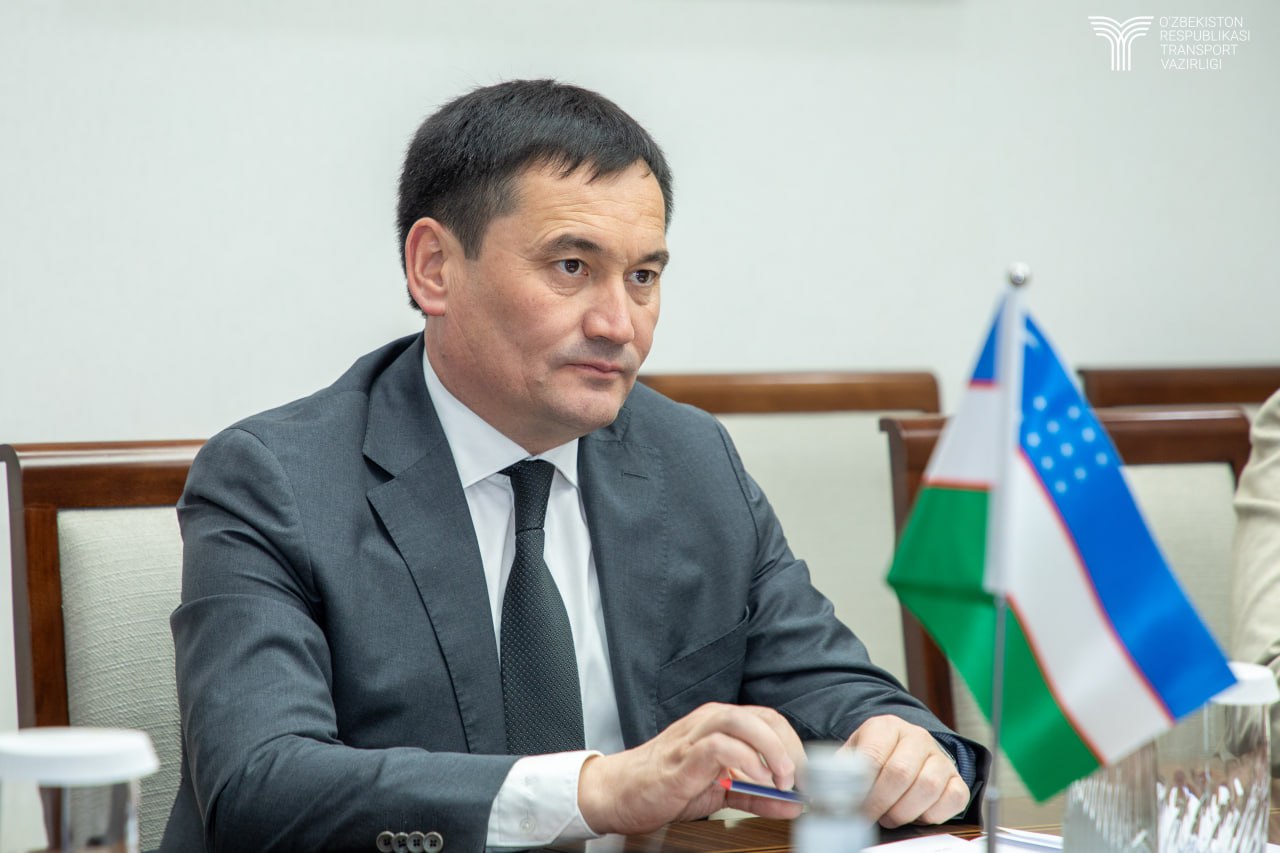BAKU, Azerbaijan, October 23. Uzbekistan is developing promising transport projects for the integration of Central Asia, Uzbekistan’s Minister of Transport Ilkhom Makhkamov told Trend in an exclusive interview.
“There are promising transport projects that could provide a huge boost to the development of a whole transport system in Central Asia, the Caucasus, and countries in Europe and Asia. Bright examples of such projects include the construction of the China-Kyrgyzstan-Uzbekistan railway and the Pakistan-Afghanistan-Uzbekistan railway line project, which is being promoted by Uzbekistan. An analysis of the potential of this corridor shows that the China-Kyrgyzstan-Uzbekistan railway has several positive aspects, connecting the regions with a single railway network,” he said.
The minister noted that the new corridor will connect the regions with a unified railway network and provide an alternative route linking China with Europe along the Asia-Pacific countries-China-Kyrgyzstan-Uzbekistan-Turkmenistan-Azerbaijan-Türkiye-EU countries route. This project will also open opportunities for the export and import of goods from Uzbekistan, Kyrgyzstan, Tajikistan, Turkmenistan, Iran, and Afghanistan with China and other Asia-Pacific countries. Furthermore, the implementation of the Uzbekistan-Afghanistan-Pakistan line will connect India and China, creating a powerful South Asia (India-Pakistan)-Afghanistan-Uzbekistan-Kyrgyzstan-China corridor.
“The development of the mentioned projects will increase the transit potential of the Central Asian region, the Caucasus, and others, including Uzbekistan, and lead to the formation of new multimodal transport and transit digital corridors: India-Pakistan-Afghanistan-Uzbekistan-Kazakhstan-Azerbaijan-Georgia/Türkiye-EU,” emphasized Ilkhom Makhkamov.
According to him, Uzbekistan could potentially become a crossroads between two directions: north-south and west-east, where the territory of the country and the entirety of Central Asia will be considered a single major logistics hub.
He also highlighted the advantages of the Transafghan corridor, which will improve the transit status of Central Asian countries and significantly strengthen their mutual relations.
“Central Asian countries do not have direct access to sea transport and are thus cut off from the most economically advantageous transport routes, making the development of transport infrastructure in the region one of the key tasks,” Ilkhom Makhkamov said.
According to the minister, access to Pakistani ports through Afghanistan is the shortest route to the sea for Uzbekistan. Through the Indian Ocean, Uzbekistan will be able to establish trade relations with countries in South Asia, Africa, North America, and South America. In turn, Pakistan is also interested in this direction, as it will allow it to enter the Central Asian market, improving political and social relations.
He noted that Central Asian countries possess significant reserves of natural underground resources and actively export them. In this context, the Transafghan railway will become an important tool that will provide the countries in the region with the opportunity to effectively integrate with the global economy.
“The Transafghan corridor provides an opportunity to connect the railway infrastructure of Central and Southeast Asian countries, opening new paths for the exchange of both material and cultural values,” he emphasized.
The minister pointed out that in the near future, with a well-structured strategy for developing the transport sector and integrating into the global network of rail and road transport, the main indicators in the transport sphere will be achieved, leading to a potential increase in cargo turnover, delivery speed, the volume of transit cargo, passenger turnover, and simultaneously the flow of transit goods. This, in turn, will enhance the attractiveness of the Central Asian region and the competitiveness of its transport routes.







